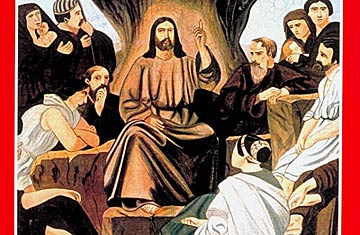
(9 of 11)
As a potential force for helping regenerate old-fashioned values in America, the Evangelical movement stands in an equivocal position. It is large but not organized, and often fragmented by arguments over matters like the "inerrancy" of the Bible. But the movement is now richer and more powerful than it has been in half a century. Men like Billionaire Nelson Bunker Hunt, Presbyterian son of H.L. Hunt, are prepared to help it. Hunt is head of Bill Bright's international executive committee, and considers the stupendous goal of raising $1 billion "absolutely realistic." Bright's overall chairman, Baptist Wallace Johnson (the "praying millionaire" of Holiday Inns), travels 20,000 miles a month lining up contributors.
Besides businessmen, the movement has other converts and friends in high places. The most notable: Jimmy Carter, of course, and Oregon's Senator Mark Hatfield, one of the first Northern politicians to espouse Evangelical values at a time when religion, and that kind of religion particularly, was a distinct political liability except in the South.
Politics and wealth create problems of their own. Respectability and riches do not often lead to serious efforts at social reform. Money also creates image problems for revivalists like Oral Roberts, who thinks his finances are nobody's business, and Graham, who only this year for the first time decided to file open financial statements for his national program.
Laments Carl F.H. Henry, a distinguished theologian: "Another year has passed in which the movement has registered no notable influence on the formative ideas and ideals of American culture." There is little Evangelical leverage in the great universities or communications outlets. "How often do you see a born-again Christian portrayed on TV except as some hick?" asks Philip Yancey of Youth for Christ.
Will Evangelicalism simply go on consoling people in the face of alienation and apocalyptic fear, a not inconsiderable mission? Or will it move toward a "Third Great Awakening" that might help to regenerate American life? That is a matter for history to decide. In the history of Evangelicalism itself, there are precedents for both directions.
Evangelicalism is traceable to 17th century Germany and the work of Philipp Jacob Spener, whose "Pietists" rebelled against the formalism and worldliness of the German Lutherans. Like today's Evangelicalism, the movement initially emphasized personal commitment to Christ and devotional life. But when the "Evangelical Awakening" reached Britain, Methodist John Wesley and his successors virtually revolutionized society. Among the results:
